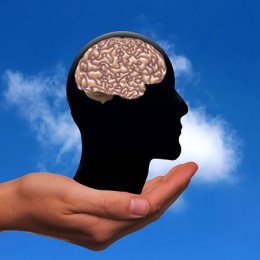Does Brain Training Really Work?
Good performance is a sum of physical and mental capabilities. Sometimes the limitations that the athletes face during the workout and actual competitions are not brought about by their physical incapabilities. They come about due to cognitive demands that stem from fatigue.
So, does brain training really work? There is evidence that points to better performance and resilience after training. This training is meant to enable the mind to overcome negative events. It also helps the athlete rise above accidents and failure for a starring performance.
There is evidence that links slower reaction time to increased likelihood of getting musculoskeletal sprain and injuries to the knees, and the ankles. The communication for the muscles in these areas to contract or relax comes from the brain.
If one is trained to enhance balance and reduce the reaction times, there can be greater coordination of muscles and better performance. The training can help the athlete return to his or her pre-injury performance and strength quite fast with the right brain drill.
Physical Benefits Of Brain Training
Mind training also improves vision. The vision acuity declines as one moves up and down. Brain exercise can enhance eye tracking and eye coordination. The super sight helps the athletes, especially the ball players figure out the direction of the ball, control the ball, and hit the target. This gives the athlete a competitive advantage and a higher probability of scoring than average athletes. Visual work out improves eye performance and ability to distinguish contrasting colors during the game.
Brain training helps one get through negativity and past failures when on the track. It is common for an athlete to be overwhelmed with memories of a time that he or she did not perform well in the past. Furthermore, it is also possible for one to be under a lot of pressure to perform. These two may really put one down to a point that they are unable to perform. The training helps the athlete overcome the fear of failure and entertain feeling of happiness, success, and confidence.
Building Resilience With Mental Training
Mental training also helps build resilience. Resilience is the ability to bounce back in a catastrophic occurrence or accident. There are people who swam to victory using a single hand after the tendons of the other were torn. Their minds are better at handling the situation and push the body to perform beyond the physical limitations.
Resilience in turn helps build endurance. This is the ability to handle pain and still perform. A tough mind can deal with various difficult situations out of the playing field.
Standard mental preparation involves stressing out the intellect so that it learns to perform under strain. Several approaches are used. A popular one is the use of computer simulations and tests to keep the mind occupied.












